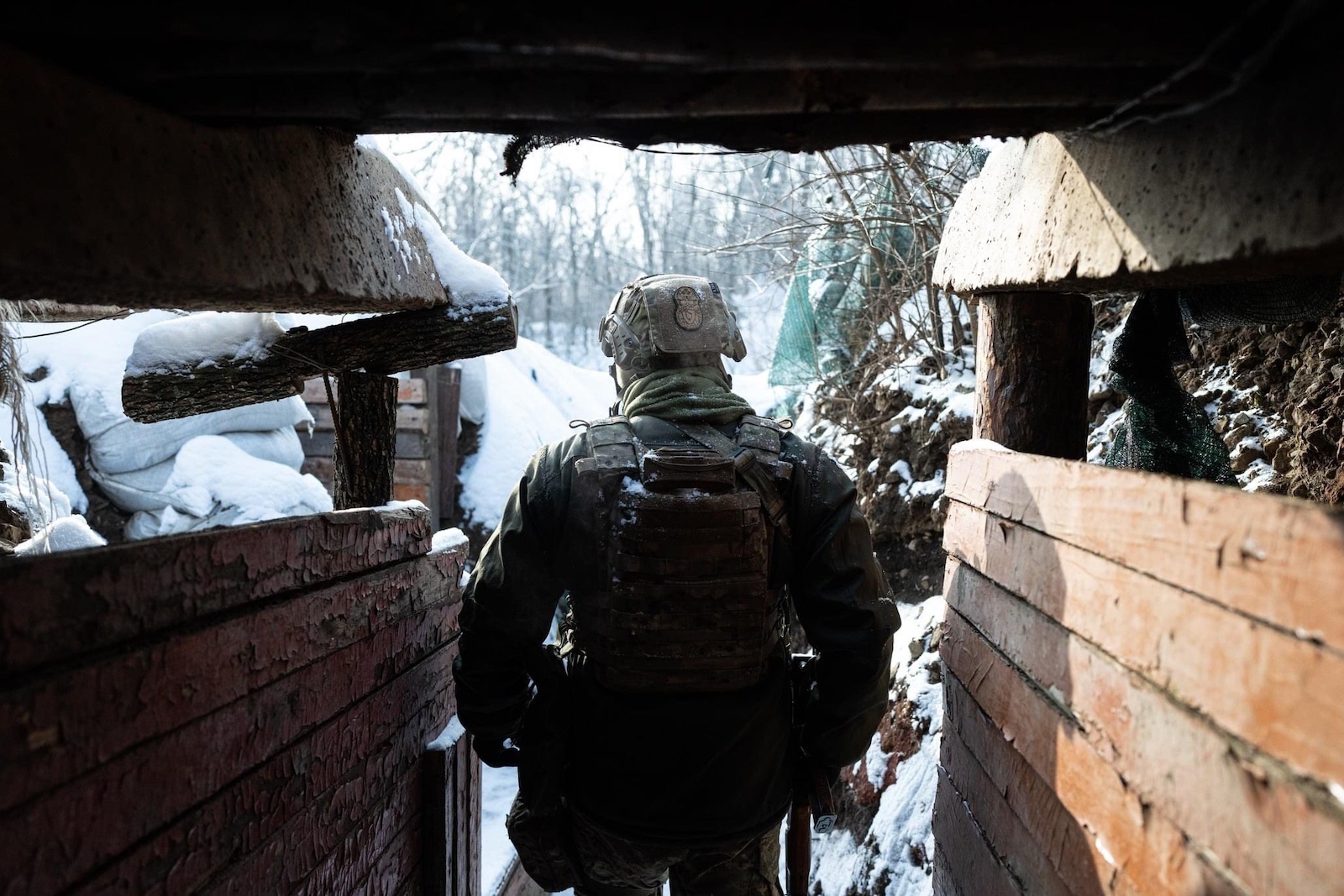
Will America’s Interventionists Get the War with Russia they Crave?
This week, U.S. interventionists itching for a war with Russia saw the multipolar world in action in Ukraine and they didn’t like it one bit.
Now that Russia has recognized the independence of the rebel-controlled territories of Luhansk and Donetsk and commenced what Russian President Vladimir Putin called a “special military operation” in Ukraine, the U.S. will impose more sanctions on Russia and probably increase arms shipments to Ukraine and allies in the region. U.S. President Joe Biden telegraphed the extent of America’s involvement (for now) when he declared no U.S. troops would deploy to Ukraine regardless of whether Russia invaded or not. However, additional U.S. troops will arrive to bolster local resolve and, Washington thinks, to deter Russia, which assumes Russia is interested in invading Poland or the Baltic states, for example.
Though the U.S. thinks it’s not a belligerent, its weapons shipments to Ukraine, and use of sanctions, and information operations, means America is “in it” regardless of how it’s parsed. You can be pretty sure Putin doesn’t think the U.S. is standing aside.
The U.S. could have kept a political dispute over Ukraine’s future political alignment as just that but this thing metastasized into a morality play and an armed conflict with Vladimir Putin as the villain from Central Casting: KGB agent! World’s richest man! He lives in a palace!
Russia asked NATO and the U.S. for negotiations about the future security architecture of Europe, and put its concerns in writing, in English. NATO and the U.S. replied “No dice” and the two sides were left talking past each other.
Why is the war party so angry and anxious to get involved in that scrap in the Donbas?
First, nostalgia. These guys miss the unifying certainty of the Cold War and regret they missed the Big Game against the Red Army. The Cold War sputtered to an end one day with no victory parade in Moscow followed by the prosecution of Soviet officials. NATO was repurposed from an anti-Soviet alliance to an anti-Russian alliance/jobs program, hoping for another chance someday, but with (fingers crossed) a lesser chance of a nuclear response by Moscow.
Stunning reporting from @clarissaward sheltering in a subway station in Kharkiv where hundreds of people, children and dogs are hiding from airstrikes, in scenes reminiscent of the Blitz pic.twitter.com/I7hHEtOKue
— Nora Neus (@noraneus) February 24, 2022
Next, identity politics. In 2015, Glenn Greenwald reported on the “deeply cynical but highly effective tactic” of the Western security services adopting pro-gay and feminist ideology as a way to justify intervention in other countries that were not in alignment with current progressive ideology. Repackaging wars in the guise of progressive social causes would justify intervention in wrongthink societies to make the natives follow the straight (no pun intended) path.
In 2022, Richard Hanania noted that the Russian law banning gay propaganda aimed at minors was a “turning point” for American political elites, when Russia became their Great Satan. He posits that their hysterical response was rooted in their expectation that a European, Christian nation wouldn’t behave that way, while not being as alarmed with the same behavior from Muslims or Africans – exposing the “soft bigotry of low expectations” inherent in Leftism.
Greenwald and Hanania made interesting – but speculative – arguments. However, faster than you can say “I did that!” the Biden administration warned that after the Russians invaded Ukraine, they would jail the gays, and so the administration’s helpmates dutifully fell into line and parroted that propaganda and, just in time for the mid-term elections, the “news” that Russia is responsible for increased gas prices, inflation, and supply-chain shortages.
“Diversity is our strength” brags the U.S. military but, despite superior firepower, it was defeated by the non-diverse Afghan Taliban and Iraqi militias, the latter sponsored by Iran’s non-diverse Revolutionary Guards. Aside from seeing its progressive model fail, the thoroughly modern Pentagon suffered the further obloquy of validating the dead white male Napoleon Bonaparte who observed, “In war, moral power is too physical as three parts out of four” – advice America’s opponents weren’t reluctant to heed.
Thousands of protesters took to the streets of Russian cities on Thursday to protest President Vladimir Putin’s decision to invade Ukraine. The police detained more than 600 people in Moscow alone, according to a rights group. https://t.co/iaolQ8JiZX pic.twitter.com/qNGBmx4yjn
— The New York Times (@nytimes) February 24, 2022
Last, is “the forgetting,” not by the national security establishment, which has definitely forgotten how to win wars, but by American taxpayers of “failure tailgating failure” in Iraq, Afghanistan, Libya, (and next Syria). The military needs to arrest its dizzying fall in polls of public trust and confidence – down 25 points in three years – and hopes a good showing will keep the budget dollars, and recruit bodies, flowing. The interventionists inside and outside the government are like degenerate gamblers, believing they can recoup their losses with one last roll of the dice.
Insouciance towards risk is a feature of American interventionism and the U.S. model is to use its technology, economic power, and geographic isolation to shift the physical risk of its policies to the foreigners in the combat zone, with the attack drone program in Afghanistan the best example. The same logic applies, literally, close to home as none of the interventionists likely have children in the infantry. Carrying a rifle is the job of some truck driver’s kid from Billings, the kids’ John Kerry was talking about when he said, “You know, education, if you make the most of it, you study hard, you do your homework and you make an effort to be smart, you can do well. If you don’t, you get stuck in Iraq.”
Peggy Noonan was talking about the interventionists’ insulation from policy consequences, known as moral hazard, when she observed, “The protected make public policy. The unprotected live in it.”
On the Left, it may be about identity politics, but on the Right “It’s always Munich.” Lately, many on the right have been reluctant to put America between Russia and Ukraine, when most voters want Biden to make a deal with Putin to avoid a war in Ukraine. In response, they have been called out as OK with “regimes invading their neighbors.” That’s untrue, of course, as the non-interventionists know strategic success isn’t just about not appeasing your enemy, but also its corollary: not provoking him.
And after Biden’s “first tranche” of sanctions, Republican Senator Lindsey Graham, who never met a war he didn’t like, hit his mark and called the situation “the 1930s all over again.”
Fox News personality Tucker Carlson was recently castigated for questioning U.S. involvement in Ukraine’s fight with Russia when Washington should be preparing to confront the real threat – China. Carlson was previously criticized for asking what’s the benefit for the U.S. in NATO expansion, if it brings an obligation to defend places like Estonia and Latvia, both eager for U.S. protection, but which also raised Waffen SS divisions in World War II. The conservative Carlson was obviously channeling the Russian (aha!) anarchist Mikhail Bakunin who cautioned “Beware of small states.”
The interventionist response has several causes. The media-political system requires public-facing interventionists to virtue signal their social preferences for social acceptance and media access, heeding Gore Vidal’s advice to “Never turn down an opportunity to have sex or to be on television.” It generates the most cash from defense contractor advertising and donations to think tanks and political campaigns. (That prep school tuition doesn’t pay itself.) And last, as these people have learned nothing and forgotten nothing, it is a chance for Donald Trump’s opponents to cast his lack of enthusiasm for costly foreign entanglements as fealty to Vladimir Putin.
Joe Biden bragged “Diplomacy is back” but quickly pivoted to the pre-Trump pattern of never seeing a conflict that can’t be solved by force of arms. The failure of the U.S. defense and foreign policy establishment to understand that America’s national interest required that Ukraine negotiate with the rebel republics, and that the U.S. had to concretely address Russia’s concerns about NATO encroachment, was a missed opportunity that has resulted in hostilities that have pushed the U.S. and the world down an uncertain path.

